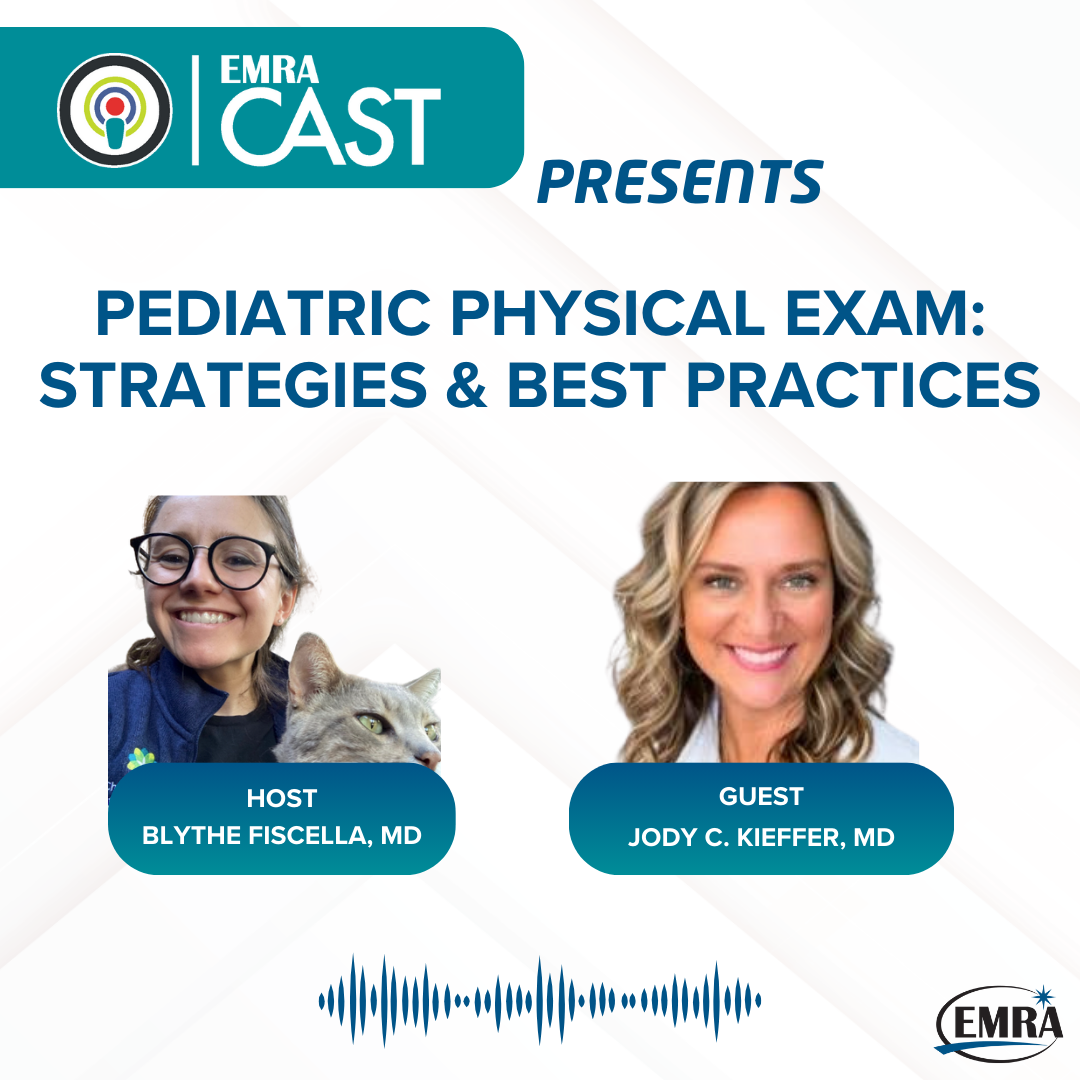Pediatric Physical Exam Essentials: Strategies and Best Practices
Pediatric Physical Exam Essentials: Strategies and Best Practices
April 1, 2025
This episode of EMRA Cast features Dr. Jody Kieffer, a pediatric EM attending physician at Nemours Children's Hospital. Dr. Blythe Fiscella, EMRA*Cast host, gets expert advice on examination strategies for pediatric patients. Learn about newborn-specific exams, strategies, and holding techniques to conduct ear and throat exams in toddlers; the use of metered dose inhalers; the appropriate use of ibuprofen and acetaminophen; and guidelines for discharge counseling for bronchiolitic patients.
Host
Blythe Fiscella, MD
Christiana Care
EM/IM Combined Residency Class of 2026
EMRA*Cast Episodes
OVERVIEW
This episode of EMRA Cast features Dr. Jody Kieffer, a pediatric EM attending physician at Nemours Children's Hospital. Dr. Blythe Fiscella, EMRA*Cast host, gets expert advice on examination strategies for pediatric patients. Learn about newborn-specific exams, strategies, and holding techniques to conduct ear and throat exams in toddlers; the use of metered dose inhalers; the appropriate use of ibuprofen and acetaminophen; and guidelines for discharge counseling for bronchiolitic patients.
TAKE-HOME POINTS
- The dangerous diagnoses to remember in the newborn are sepsis, congenital cardiac disease, and non-accidental trauma.
- Your exam starts at the doorway. For newborns, this starts with observing their tone.
- Newborn exams should be head-to-toe. Fontanelles should be palpated in every baby (open, soft, and flat is normal). Look at the oral mucosa. Turn their head and make sure there isn't resistance. You can skip the ears at this age, bring their knees to their chests to make the abdominal exam more useful.
- The newborn cardiac exam involves auscultation, palpation of upper and lower extremity pulses (brachial, femoral), 4-limb blood pressures, pre and post-ductal pulse oximeter (R hand and foot).
- Toddler exams start outside the room, too. Stranger danger is strong in this age group, so come in slowly. Talk to them, let them play with your tools (safely!), incorporate play for your exams, give them choices.
- Give parents explicit instructions for how to hold their child during the ear exam (sit in the parent’s lap, facing the parent with the parent giving the child a bear-hug to hold them still).
- Have the parent hold the child in a baby position (cradling them with the head towards you, the examiner) and use the tongue blade like a laryngoscope while standing behind their head to open their mouth and get a view.
- Don’t give ibuprofen until a kid is older than 6 months.
- Remember rectal acetaminophen exists, so even the vomiting kid with a fever can get relief!
- Most viral illnesses should start getting better by day 5-7. If they are getting worse on day 5-7, that should prompt a return visit either to their pediatrician or to the ED.
- Counsel parents to monitor for dehydration (need at least 1 diaper every 8 hours) and respiratory distress (breathing over 60 times/minute for more than 5 minutes consistently OR having retractions for more than 5 minutes consistently) that should prompt a return visit to the ED.





